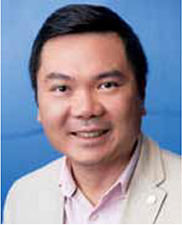On the nature of being a professional
 |
| Dr Matthew Chow |
Over the years, I’ve been given a lot of advice about what it means to look and act like a professional. From what I can gather, the ideal doctor is a stoic, dispassionate professional, dressed in business attire (or scrubs or a white lab coat), who demonstrates no particular social or cultural inclination. In a word, a professional doctor is neutral. There seems to be a list of dos and don’ts to get us here; however, the don’ts stand out most in my mind:
- Don’t dress too casually.
- Don’t let patients call you by your first name.
- Don’t show too much emotion.
- Don’t reveal anything about yourself.
- Don’t be too funny, or too irreverent, or too opinionated.
But what I discovered is that the idea of neutral isn’t so neutral at all. Rather, this ideal seems to be a very specific mode of dress, behaviors, and beliefs that may work for some but not all. If you’re in doubt, ask an Indigenous person, an LGBTQ2S+ person, a person of color, a person who has lost their job during the pandemic, a person who is suffering from a substance use disorder, a person who has a hidden trauma that they need to share, or any number of other neighbors, friends, and colleagues.
In my clinical work with children, adolescents, and families (I see and talk to adults as much as I do kids!), I’ve challenged this neutral image in a number of ways:
- I show up to clinic in loud T-shirts and jeans.
- My patients call me by my first name all the time.
- I am visibly moved when someone tells me about something unjust that has happened to them.
- I openly share my personal history, my own experience of illness, and my hopes and fears.
Worst of all, I tell jokes (even dad jokes), do unexpected things at surprising moments, and share my strong opinions about a lot of issues.
So, what have I found?
I am often one of the first people that an LGBTQ2S+ person comes out to. I am far too often the first person who learns that a teenager has been date-raped. People break down and tell me about old traumas. People tell me their stories of the racism, sexism, homophobia, and overall bigotry and injustice they experience every day. I know I am making a difference because my MOA swears that some of the angriest and most belligerent patients walk out of my office smiling.
Now, I don’t follow this approach for all situations. What works in my clinical setting won’t work in all settings, just as what works for one patient doesn’t work for another. I also certainly take great care when considering how I come across in my role as president of Doctors of BC.
However, my point is that we all have different contexts within which we should examine what it means to be professional. There isn’t a single meaning that fits every doctor—what’s important is to be authentic, to be proud of your identity, and to demonstrate your humanity, because in doing so we demonstrate to our patients that it’s okay for them to do the same.
I began with a list of don’ts, and I will end with a list of dos:
- Do be willing to learn.
- Do be willing to ask people what they prefer from you, which may not be what you were taught.
- Do honor your culture, your history, and your customs, and do the same for your patients.
- Do show care for your patients, or indeed any other human being, in whatever way is most natural for you.
- Most importantly, do be human.
—Matthew C. Chow, MD
Doctors of BC President


Well stated Dr Chow.
In my 44 years of practice I hope I managed to be professional in my dealings with all patients regardless of race, beliefs, identity or lifestyle choices. I believe any success gained in this area depends on the ability of the physician to remain credible, empathetic and "human"
The science of medicine has to be supplemented by the art of medicine and this combination results in better outcomes and a meaningful physician/patient relationship.
In the appropriate circumstances it is within the bounds of being professional to share joy, pain and grief with those we have taken an oath to guide through the medical challenges of life.
We all may come to appreciate the physician who approaches us in an empathetic "human" manner when we face our own medical challenges.